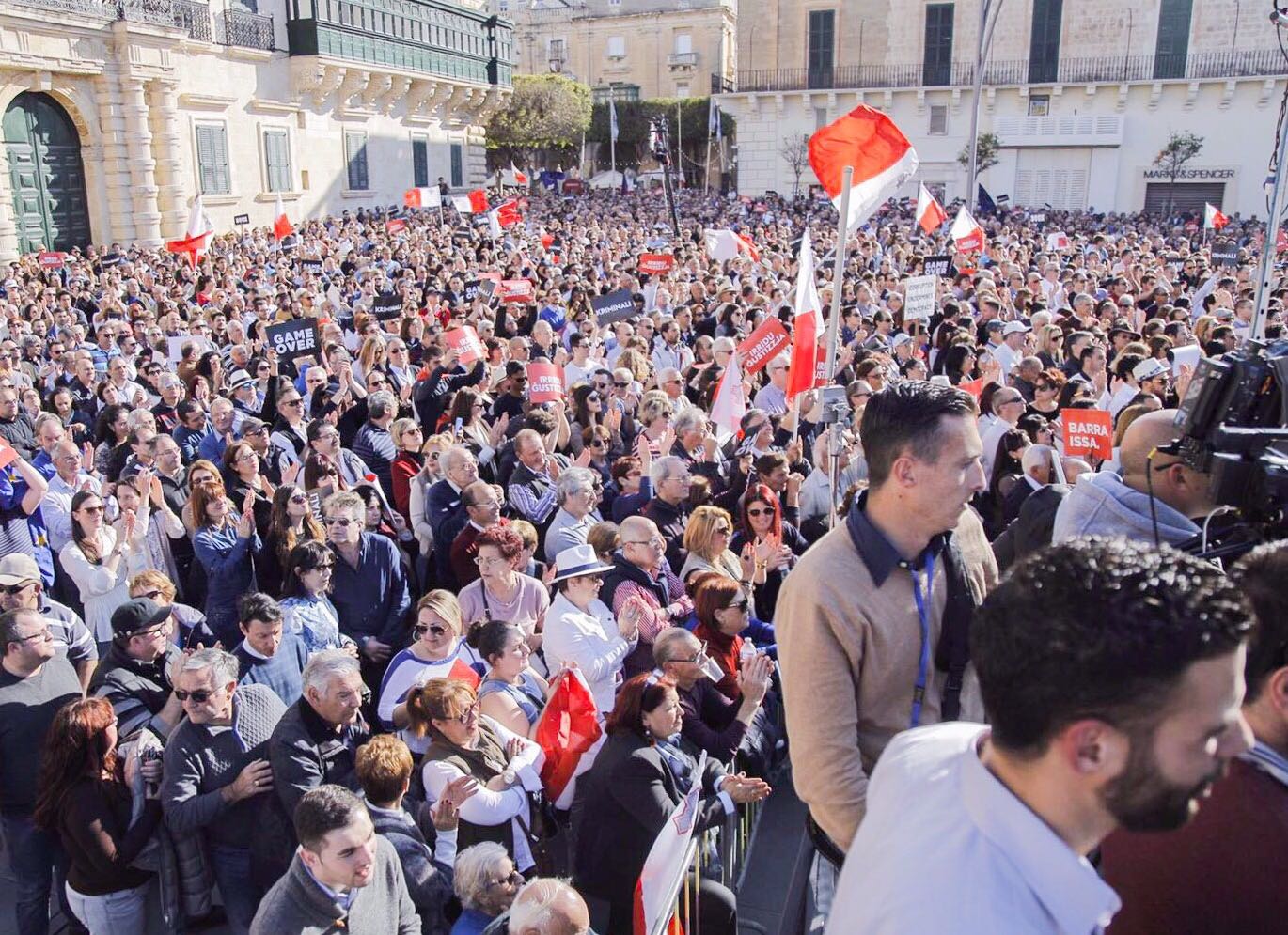GUEST POST/What would happen now in a normal Western democracy
This is a guest post. The author is Maltese but has lived in Britain for many years.
In the circumstances in which Malta now finds itself, what would happen in a normal Western democracy? It is all blindingly simple.
By this time, the men in grey suits – in the Maltese context, senior Ministers of State and the Party Whip, read Louis Grech, George Vella, Edward Scicluna and Godfrey Farrugia) would have gone to see the Prime Minister and explained that soundings within the Labour Party’s parliamentary group show that the he no longer has the confidence of a majority in parliament.
A prime minister intent on doing the decent thing would then see the head of state, resign and suggest to her that she should now consult with senior members of the Labour Party’s parliamentary group on whether a Labour MP can be found who is likely to command the confidence of a majority of fellow MPs.
The head of state would then explore with senior Labour MPs whether an alternative prime minister could be found from the ranks of the existing parliamentary Labour Party commanding the confidence of a majority of MPs.
If an alternative prime minister is found, the government could proceed with its 2013 mandate to govern the country until 2018, and would doubtless seek to make the party re-electable by distancing itself from the scandals which will have brought down a prime minister but not a government.
If no other Labour MP can be found to command the confidence of a majority in parliament, the head of state would have no option but to dissolve parliament and an election will be called.
On the other hand, a prime minister with less regard for doing the decent thing would force the issue in parliament and lose a vote of no confidence. The prime minister would then, with dignity in tatters, have no option but to resign and, acting in a caretaker position, advise the head of state to dissolve Parliament after which an election will take place.
If the first happens, the Labour Party would, as a mature democratic party, be entitled to serve its mandate to the statutory end under a new prime minister; if the second, it would not.
Will any of this happen in Malta? Are Labour MPs ready to act in the interests of the country and of their party, which was elected to power by an unprecedented majority of 36,000 votes? The parliamentary maths make such a scenario perfectly possible.
The margin of seats between the two major parties gives each Labour MP an awesome responsibility and power to do the right thing by country and party, to sanitise the brand which they can then in honour offer to the country at the next election.
But again, will it happen here? Probably not, because, despite the trappings, this is not a normal Western democracy. The tribalism of the electorate simply reflects that of its politicians, who fail to understand their pivotal and individual role in the democratic structures of the country.
They see themselves as toy soldiers marching to the tune of another, rather than as independent men and women with personal responsibilities to an electorate who gave them their trust.
The above scenario of what would happen were Malta a normal Western democracy saw off political Titans like Margaret Thatcher and Tony Blair, but sadly it all seems like pie in the sky in Malta. When, oh when, after 53 years of independent statehood, will Maltese MPs grow (up) into their role?

